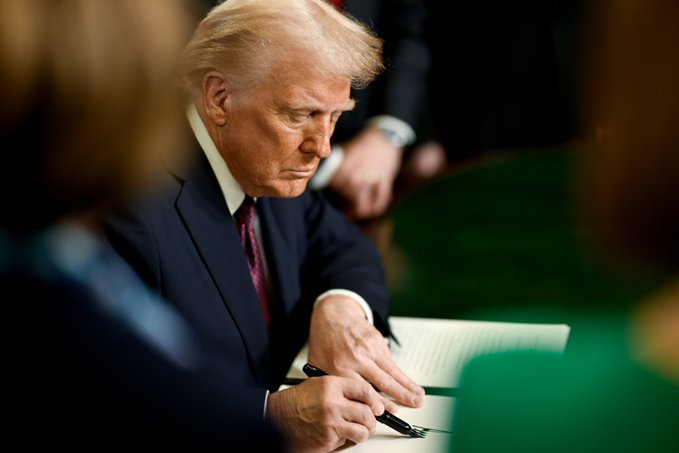
Trump Pulls U.S. Out of Paris Climate Agreement Again, Citing Economic Concerns » Capital News
Washington, D.C., Jan 29 – President Donald Trump has officially begun the process of withdrawing the United States from the Paris Climate Agreement, fulfilling a key campaign promise on his first day back in office. The move, which echoes his 2017 decision to exit the accord during his first term, has reignited global concerns over America’s commitment to fighting climate change.
Signed by nearly 200 nations in 2015, the Paris Agreement is a landmark accord designed to curb global temperature rises by reducing greenhouse gas emissions. It requires each country to set voluntary targets for cutting emissions, with progress reviewed every five years. Wealthier nations also pledged financial support to help developing countries transition to cleaner energy and cope with climate-related disasters.
Trump argues that the deal places an unfair financial burden on the U.S. while giving rival economies, such as China and India, more leeway to continue emissions growth. “This agreement punishes American workers and taxpayers while letting the biggest polluters off the hook,” Trump said in a statement. “We will no longer be part of a deal that weakens our economy.”
The U.S. is the world’s second-largest annual emitter of greenhouse gases and historically the biggest contributor to global warming. Climate scientists warn that without U.S. participation, efforts to limit temperature rise to the agreed 1.5°C target will face major setbacks. The United Nations has warned that current climate pledges are insufficient, with global warming projected to reach as high as 2.8°C by 2100.
While Trump’s decision is expected to take a year to fully take effect under UN rules, it has already drawn sharp criticism from environmental advocates and world leaders. The U.S. now joins just a handful of nations, including Iran, Libya, and Yemen, that are not part of the Paris Agreement.